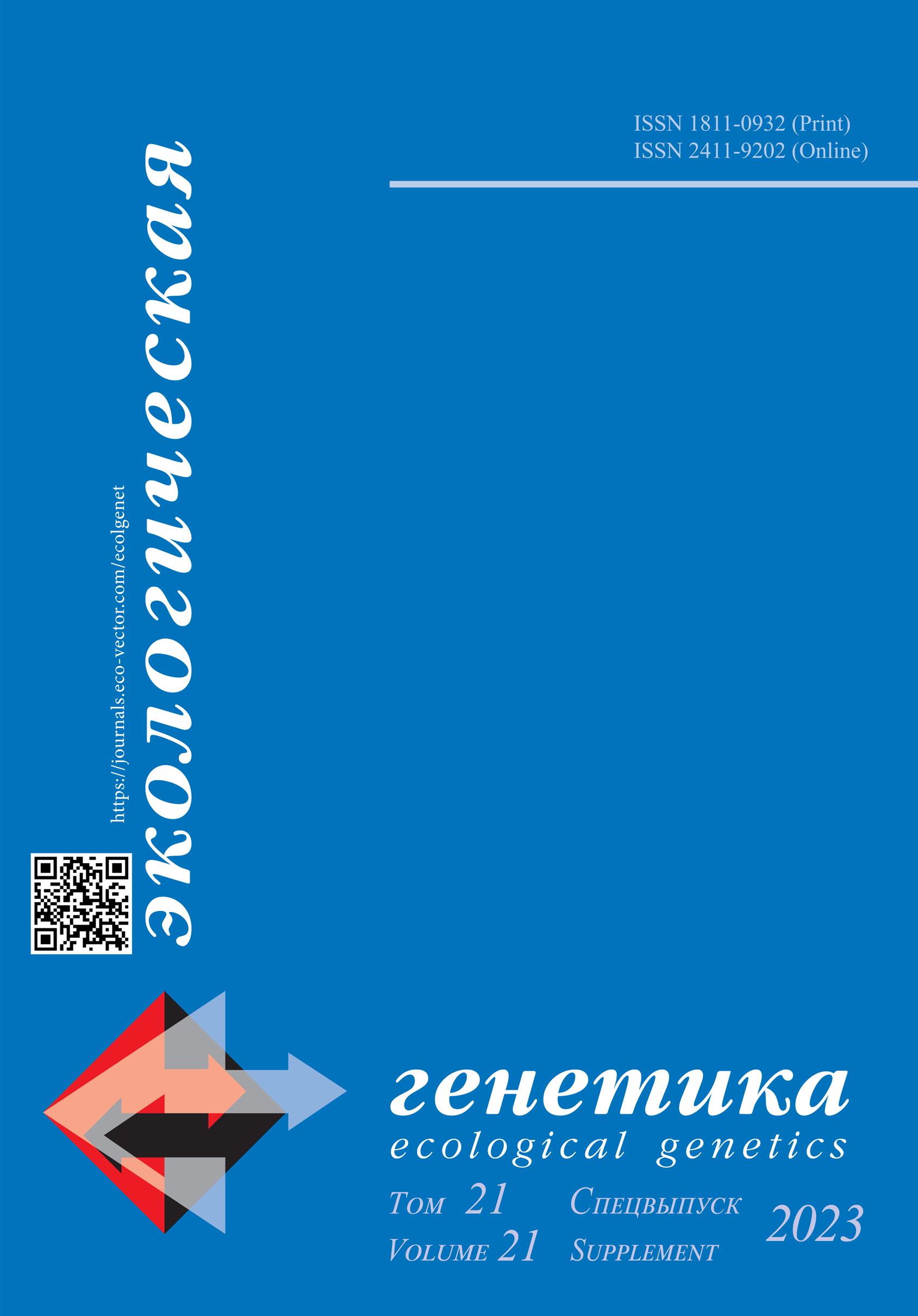Transgenic medicinal plants as producers of bioactive substances
- Authors: Yembaturova E.Y.1, Cheryatova Y.S.1
-
Affiliations:
- Russian State Agrarian University — Moscow Timiryazev Agricultural Academy
- Issue: Vol 21 (2023): Спецвыпуск
- Pages: 41-42
- Section: Genetically modified organism. The Нistory, Achivements, Social and Environmental Riscs
- Submitted: 02.08.2023
- Accepted: 31.08.2023
- Published: 04.12.2023
- URL: https://journals.eco-vector.com/ecolgenet/article/view/567947
- DOI: https://doi.org/10.17816/ecogen567947
- ID: 567947
Cite item
Full Text
Abstract
The paper covers the questions of secondary metabolite modulation in medicinal plants by means of gene engineering. It is demonstrated that cutting-edge tools of contemporary biotechnology tools made it possible to manage the biosynthesis of important bioactive substances, modify the secondary metabolism, enabling plants to synthesize and produce new compounds, as well as eliminate metabolic pathways of synthesizing harmful substances.
Currently, large-scale production of bioactive substances (BAS) requires highly productive plants to produce them. Applying methods of gene engineering to medicinal plants is a promising way to reduce the resource consumption and increase their productivity, quality and the product’s marketability [1]. Traditional growing and collecting techniques are challenged by resource shortage, environmental damage, etc. [2]. Gene engineering helps to increase pest, disease and herbicide resistance, gain greater yields and higher BAS content [3].
Using transgenic medicinal plants (TMP) as BAS producers in the pharmaceutical industry is crucial for metabolic engineering. Current research of the secondary metabolism modulation in TMP enables to modify the key BAS biosynthesis and the secondary metabolism, so that plants can produce new substances, or, on the contrary, silence the metabolic pathways for harmful ones. This way, greater TMP biomass with higher BAS content can be obtained in bioreactors. This would require rather modest investments — an advantage for biopharmacy. Nowadays, TMP are grown in vitro as calluses or suspension cell cultures. Biotechnology can modify the secondary metabolism in TMP to produce surplus amounts of necessary BAS, reduce the content of toxic compounds or even synthesize new substances. The versatility of transcription and translation mechanisms in medicinal plants enables them to accumulate homologous substances and synthesize heterologous ones. It is known that in TMP, MYB transcription factors are involved in gene regulation in secondary metabolic pathways, regulation of genes engaged in developmental processes, etc. [4]. In conclusion, we should emphasize the relative biosafety of BAS obtained from TMP, for human use, as they are chemically pure and are not connected with biological hazards.
Full Text
The paper covers the questions of secondary metabolite modulation in medicinal plants by means of gene engineering. It is demonstrated that cutting-edge tools of contemporary biotechnology tools made it possible to manage the biosynthesis of important bioactive substances, modify the secondary metabolism, enabling plants to synthesize and produce new compounds, as well as eliminate metabolic pathways of synthesizing harmful substances.
Currently, large-scale production of bioactive substances (BAS) requires highly productive plants to produce them. Applying methods of gene engineering to medicinal plants is a promising way to reduce the resource consumption and increase their productivity, quality and the product’s marketability [1]. Traditional growing and collecting techniques are challenged by resource shortage, environmental damage, etc. [2]. Gene engineering helps to increase pest, disease and herbicide resistance, gain greater yields and higher BAS content [3].
Using transgenic medicinal plants (TMP) as BAS producers in the pharmaceutical industry is crucial for metabolic engineering. Current research of the secondary metabolism modulation in TMP enables to modify the key BAS biosynthesis and the secondary metabolism, so that plants can produce new substances, or, on the contrary, silence the metabolic pathways for harmful ones. This way, greater TMP biomass with higher BAS content can be obtained in bioreactors. This would require rather modest investments — an advantage for biopharmacy. Nowadays, TMP are grown in vitro as calluses or suspension cell cultures. Biotechnology can modify the secondary metabolism in TMP to produce surplus amounts of necessary BAS, reduce the content of toxic compounds or even synthesize new substances. The versatility of transcription and translation mechanisms in medicinal plants enables them to accumulate homologous substances and synthesize heterologous ones. It is known that in TMP, MYB transcription factors are involved in gene regulation in secondary metabolic pathways, regulation of genes engaged in developmental processes, etc. [4]. In conclusion, we should emphasize the relative biosafety of BAS obtained from TMP, for human use, as they are chemically pure and are not connected with biological hazards.
About the authors
Elena Yu. Yembaturova
Russian State Agrarian University — Moscow Timiryazev Agricultural Academy
Author for correspondence.
Email: e.embaturova@rgau-msha.ru
ORCID iD: 0000-0001-5115-4921
SPIN-code: 6390-3500
Associate Professor, Department of Botany, Breeding and Seed Production of Horticultural Crops
Russian Federation, MoscowYulia S. Cheryatova
Russian State Agrarian University — Moscow Timiryazev Agricultural Academy
Email: u.cheryatova@rgau-msha.ru
PhD, Associate Professor of Department of Botany, Breeding and Seed Technology of Horticultural crops
Russian Federation, MoscowReferences
- Wawrosch C, Zotchev SB. Production of bioactive plant secondary metabolites through in vitro technologies–status and outlook. Appl Microbiol Biotechnol. 2021;105(18):6649–6668. doi: 10.1007/s00253-021-11539-w
- Cheryatova YuS., Yembaturova EYu. Transgenic plants — a threat to local flora? Ecological Genetics. 2022;20(Suppl.1):54–55. doi: 10.17816/ecogen112372
- Cheryatova YuS. Actual aspects of anatomical research of medicinal plant material of Vinca minor L. IOP Conference Series: Earth and Environmental Science. 2021;723(2):022036. doi: 10.1088/1755-1315/723/2/022036
- Thakur S, Vasudev PG. MYB transcription factors and their role in Medicinal plants. Mol Biol Rep. 2022; 49(11):10995–11008. doi: 10.1007/s11033-022-07825-z
Supplementary files










